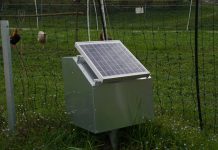
Solar panels have become an increasingly popular option for producing sustainable electricity due to the growing awareness among businesses of the environmental and financial advantages associated with renewable energy generation. In order to make sound decisions and get started on a road toward more environmentally friendly and cost-effective energy, it is essential to have a thorough understanding of the expenses connected with purchasing solar panels for your company. In this article, we will go through the different costs you’ll have to bear to get the solar panels.
Initial Investment
The initial investment in solar panels and other associated equipment is the most important factor to consider when calculating costs. The size of the solar installation is determined by the amount of electricity that your business requires, with bigger systems often requiring greater initial expenditures. Having said that, it is of the utmost importance to understand that this is a long-term investment that has the potential to provide returns via energy savings and environmental advantages.
Increasing the efficiency of your solar investment system can be accomplished by using technology. The weather APIs give real-time weather information, which enables you to monitor temperature, precipitation, and solar exposure. To modify energy production expectations, arrange maintenance operations, and ensuring that your solar panels continue to function at their best level regardless of changes in the weather, this data offers important assistance.
The costs of Installation
The installation expenses include various components, including labor, mounting structures, wiring, and any required permissions. By hiring expert solar installers, you can assure that the installation procedure will go smoothly and that the system will work at its best. While this article focuses on businesses, it’s worth noting that solar panel installation for residents can also significantly reduce energy costs and contribute to environmental sustainability. Even though these expenses are a part of the total investment, they are essential to the effectiveness and longevity of your solar panel system.
Maintenance and Monitoring
The ongoing maintenance process is another component that contributes to the total cost of having solar panels. For the system to have the longest possible lifetime and maximize its efficiency, it is necessary to do routine cleaning, system inspections, and periodic repairs. Ongoing maintenance of your solar investment could be simplified with the help of some solar manufacturers that provide maintenance packages.
Alternatives for Financing
Businesses can look into various financing solutions to relieve the initial financial load. Alternatives to adopting solar energy that may not need a major initial investment include solar leases, power purchase agreements (PPAs), and solar loans. Your company’s financial objectives and preferences should guide your decision about the most appropriate financing arrangement so that it doesn’t feel like a burden.
The ROI
To have a comprehensive knowledge of the long-term financial advantages of solar panel adoption, conducting a return-on-investment analysis is essential. It is important to consider various aspects, including the value of environmental sustainability, possible revenue from extra energy production, and energy savings. Five to 10 years is the normal period for return on investment (ROI), depending on various circumstances, so don’t start hoping to get the returns from day one.
Incentives And Tax Credits Provided by The Government
The total cost of installing solar panels is greatly reduced as a result of the existence of several governments that provide financial incentives to companies that invest in renewable energy. If you want to optimize the financial advantages of your solar investment and speed up the payback time, you must research the various programs and tax credits available in your country.
Final Thoughts
Although the initial expenses associated with purchasing solar panels for your company can seem to be large, the long-term benefits, which include both financial and environmental advantages, make it an enticing investment. To make accurate decisions, it is essential to have a full grasp of the original investment, installation costs, continuing maintenance, financing possibilities, return on investment, and available incentives. You will contribute to a more sustainable future by integrating solar panels into your business plan and positioning your company as a responsible and forward-thinking participant in the competitive business world.



































































